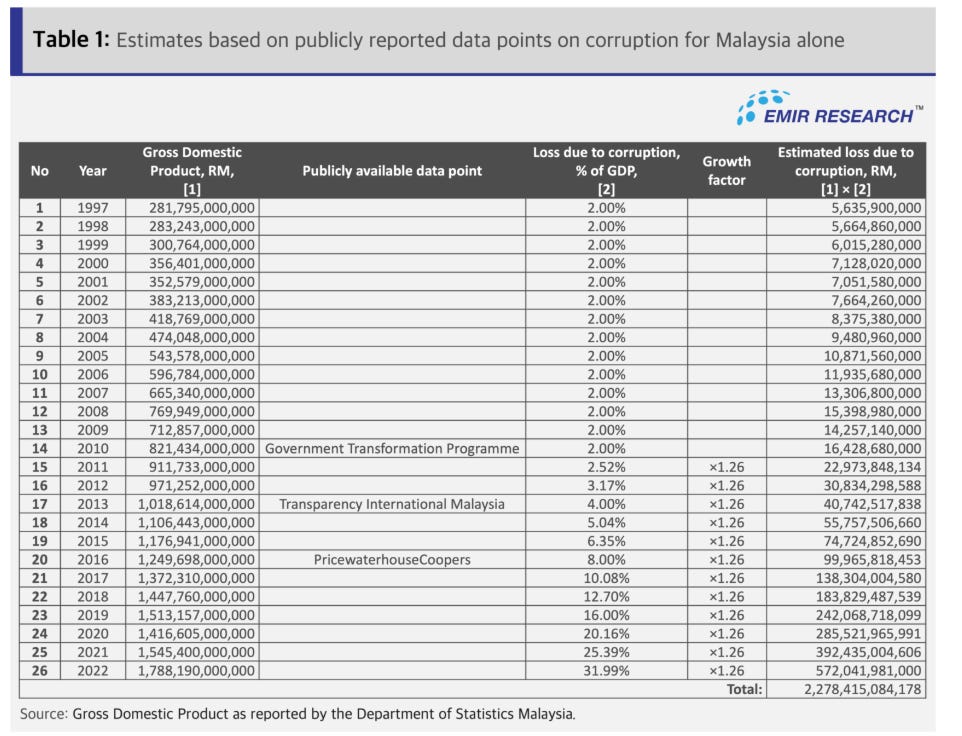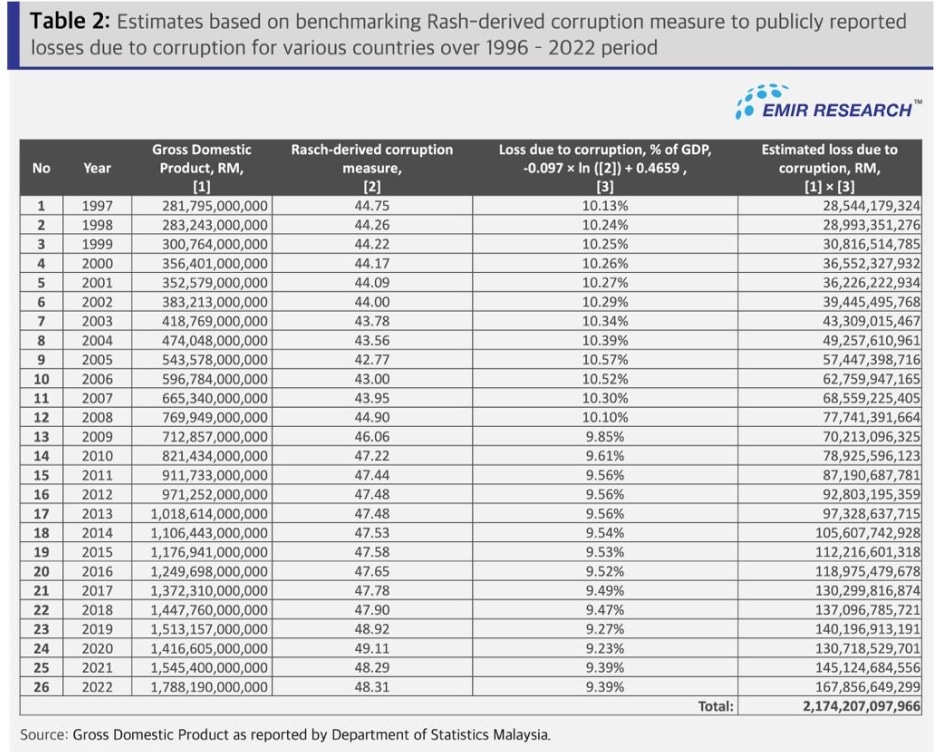
Murray Hunter
RM 4.5 trillion lost to corruption and leakages
Aug 26, 2025

EMIR Research back in May 2023 released the results of a study that estimated Malaysia has lost approximately RM 4.5 trillion due to corruption and economic leakages over the last 26 years (1997-2023). At the time, this report wasn’t widely covered by the media, but it’s one of the only studies that reveals the extent of corruption and associated cronyism in Malaysia.
Subject to the exchange rate, about USD 1.0 trillion was lost from the public coffers through corruption, inefficiencies, stolen funds, waste and misuse of funds on capital projects that became ‘white elephants’. This figure of RM 4.5 trillion from the Asian Economic Crisis in 1997 to 2022 is approximately 2.5 times the nation’s economic output. As a comparison, Malaysia’s GDP in 2024 was RM 1.5 trillion.
Study methodology
EMIR Research used a two-step approach to estimate the RM4.5 trillion loss:
Direct Losses: They looked at publicly reported data on corruption, like estimates from the Malaysian government and organizations such as Transparency International and the World Bank. For example:
From 1997 to 2010, corruption was estimated to cost Malaysia about 1–2% of GDP annually (around RM10 billion per year in the early 2000s).

From 2013 onward, losses were estimated at about 4% of GDP per year, based on reports from Transparency International Malaysia and the World Bank.
Adding up these losses over 26 years, they estimated direct losses of about RM2.2–2.3 trillion.

Opportunity Costs (Multiplier Effect): When money is spent productively (e.g., on schools or roads), it creates more economic activity, like jobs and businesses, which “multiplies” the value of the original spending. EMIR Research assumed that every RM1 lost to corruption also meant losing at least RM1 in additional economic benefits. So, they doubled the direct loss (RM2.25 trillion × 2 = RM4.5 trillion) to account for this “multiplier effect.” They note this is a conservative estimate, as the real multiplier could be higher.
The study found that losses can from three areas;
1. Embezzlement and Fraud: Money stolen from public funds, like in the 1MDB scandal, where over RM2.67 billion (USD 700 million) was allegedly funneled into former Prime Minister Najib Razak’s personal accounts, and billions more were misused globally.
2. Mismanaged Projects: Government contracts given to well-connected companies without open bidding, leading to overpriced or incomplete projects, and
3. Leakages in Governance: Inefficient spending, such as subsidies or projects that don’t deliver value, or funds lost through weak oversight in government departments and government-linked companies.
This huge loss has serious consequences for Malaysians:
1. Economic Impact: The money could have paid off Malaysia’s national debt (RM1.5 trillion by end-2022, nearly 80% of GDP) and funded schools, hospitals, or infrastructure, making life better for everyone.
2. Social Harm: Corruption erodes trust in government, fuels inequality, and drives issues like poverty and brain drain (people leaving the country for better opportunities).
3. Missed Opportunities: Without corruption, Malaysia could have invested in diversifying its economy (e.g., less reliance on oil and gas) or advancing technology, making the country more competitive globally.
In other words, the government could have eliminated poverty, paid off all national debt, developed Sabah and Sarawak, eliminated tolls, dramatically improved healthcare without the two-tier privelage system health minister Dr Dzulkefly is promoting now, completely modernized education with first class facilities and well paid teachers, and improved defence which is totally inadequate for Malaysia’s defence today.

Dr Dzulkefly promoting a two-tier hospital system.
Malaysia is now heading into a public debt crisis with debt now over 65.5% of GDP, over the statutory debt ceiling of 65%
No comments:
Post a Comment